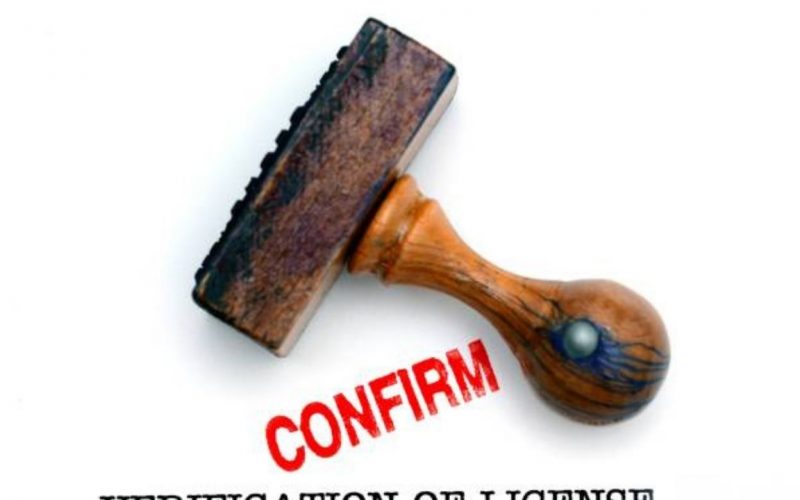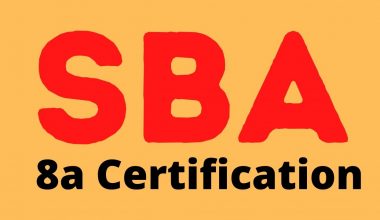When you establish a new business, you’ll almost certainly need to register it to obtain a business license and other relevant permissions.
Which licenses and permits you require will be determined by the industry and location in which you operate. Obtaining a business license can take a long time and a lot of money, it’s crucial to know which ones apply to your company (and how to get them) before you start.
We’ve put up this business license guide to assist you with the procedure. We’ll go through the many types of business licenses, their costs, and how to obtain one.
What is a Business License?
A business license is your company’s formal registration that allows you to operate in your industry and jurisdiction. Before supplying goods or services, federal and local governments require small enterprises to obtain the necessary business licenses.
County governments gain from business licenses since they allow them to collect income, enforce zoning restrictions, and regulate which businesses operate inside their borders; nevertheless, a business license can also benefit your small business.
Obtaining a license assists business owners to give their customers, employees, and other stakeholders confidence that their company is well-run and that their goods and services are trustworthy.
Each country has its own set of business licensing rules and restrictions, and failing to comply can result in fines, late fees, penalties, and even rejection of permission to operate.
As a result, it’s critical to figure out what licenses and permits you’ll need before letting the public in. Before beginning a business, everyone interested in doing so must understand what licenses they will need.
Read also: SMALL BUSINESS LICENSE: Best Practices & Procedures in the US (Detailed Guide)
Top 10 Examples of Business Licenses
- Industry-specific licenses
- Business operating licenses
- DBA (doing business as) license or permit
- Planning and zoning permits
- Building and home occupation permits
- Fire department permits
- Tax regulations
- Health licenses and permits
- Environmental licenses
- Sign permits
#1. Industry-specific licenses
You’ll probably need licenses and permits relevant to your industry in addition to the usual business licenses that most enterprises require.
Architecture, beauty salons and spas, child care, cleaning, and janitorial services, construction, electrical, engineering, food and alcohol, general contracting, healthcare, insurance, landscaping, pest control, pharmaceuticals, plumbing, temporary events, and tobacco are all common industries that require specific licenses and permits.
Also read: NIGHTCLUB BUSINESS: A Comprehensive guide to starting your own Nightclub
#2. Business operating licenses
State and city-issued business operating licenses give you legal permission to operate your business in your city and state. As each jurisdiction has its own rules and restrictions, you may need to apply for these individually at the state and city levels.
#3. DBA (doing business as) license or permit
You may be required to obtain a DBA name, also known as a trading name, fake name, or assumed name if you operate your business under a name other than the one under which you are legally registered. The requirements for DBAs differ depending on the locale.
#4. Planning and zoning permits
Each town has rules on what kinds of businesses can operate (and where), so make sure the city you’re in is zoned for your particular type of business. If it isn’t, you’ll need to file for a zoning exception and show that your business won’t cause too much of a stir in the neighborhood.
#5. Building and home occupation permits
A building permit certifies that the structure in which you operate is up to code, which is required when applying for business insurance. A home occupation permit, on the other hand, allows you to run your business from your house.
#6. Fire department permits
A fire inspection and safety permit from your local fire department ensures that your business will operate safely and in compliance with all fire codes, which is especially critical for businesses that handle hazardous materials.
Some jurisdictions require all businesses to obtain a fire department permit before they can open, while others only require periodic inspections. To find out what level of fire inspection standards apply to your business, contact your local government.
#7. Tax regulations
Maintaining compliance with all applicable tax requirements is an important (and sometimes perplexing) aspect of running a business, and a small business owner may need to obtain various licenses for tax purposes.
Almost every firm, for example, requires an Employer Identification Number (EIN), which allows you to hire employees and collect payroll taxes.
#8. Health licenses and permits
You may need to obtain certain health permissions to operate your firm, depending on your sector and area. Businesses in the food and beverage industry, for example, will need to be examined to ensure that they meet health code requirements.
#9. Environmental licenses
Certain businesses and sectors are required to obtain one of the several government-issued environmental permits. These are usually used to safeguard environmental issues such as air and water quality.
#10. Sign permits
Although it may appear benign, erecting a company sign without first obtaining the necessary sign licenses can result in substantial fines. Many municipal governments restrict commercial sign standards, such as the size and location of the sign.
Check with your local government to see if you need to follow any standards or obtain a sign permit in advance to avoid wasting money on a sign that isn’t up to code.
How to Apply for a Small Business License
You have three alternatives for obtaining a business license: file on your own, use a third-party filing service to assist you with your business license applications or hire an experienced attorney to assist you with your business license application. These are the fundamental steps to take if you want to get a company license on your own.
Keep in mind that the process for obtaining a business license varies depending on the license you require and the state in which you operate, so it’s always a good idea to seek legal advice to assist you to apply for licenses and stay in compliance.
Here is a step by step guide to apply for a small business license:
- Determine what business licensing you need
- Compile the appropriate business documents for your application
- Apply for the business license
- Receive your business license
- Keep up with license renewal requirements
>.Determine what business licensing you need
Begin by learning about the federal, state, and municipal licenses that pertain to your firm. Make contact with the appropriate agencies in the areas where you intend to operate.
“Because many government authorities lack useful websites or phone service, this can be a time-consuming process, but it’s critical to avoid the consequences of operating an unregistered business.”
Remember to get an EIN from the IRS before applying for any additional business permits.
>.Compile the appropriate business documents for your application
When applying for a license, you must read each application carefully to determine which documents to submit. Although the documents you’ll need vary depending on the type of license you have, the task you’ll be doing, and any unique rules imposed by the relevant government agency, you’ll need them all. Most licenses ask for the following:
- A description of the company, its intended operations, and its physical location.
Copies of company documents (e.g., articles of incorporation or corporate bylaws) - Proof of federal, state, or municipal tax status is required (e.g., a sales tax permit)
- Ownership and management lists
- A government filing fee, can range from a few dollars for a local permit to hundreds of thousands of dollars for state-level licenses to operate.
Business owners in some areas, such as architecture or construction, may also be required to supply the following information:
- Surety bonds
- Proof of insurance
- Educational or professional qualifications of owners and key staff
- Audited financial statements or proof of operating capital
>. Apply for the business license
It’s time to fill out and submit your application once you’ve decided which business license to apply for and what papers you’ll require. Because each application is unique, be sure to read the directions carefully.
>. Receive your business license
Many business licenses are available online and can be applied for. After applying for a business license, you will either obtain instant approval or have to wait to hear from the licensing office about the status of your application. Many agencies take weeks or months to accept applications, and that’s presuming you’ve filled out everything correctly.
After submitting license paperwork, business owners should be prepared to contact government offices to ensure approval and remedy any flaws. Given the length of time it takes to secure a license, business owners should investigate and obtain licenses and permits as early as possible in the planning phase, rather than waiting until a project or development opportunity arises.
>. Keep up with license renewal requirements
You will be given legal permission to perform the corresponding business once you have been approved and received your business license. The process of obtaining a company license, however, does not end there. Many business licenses require renewal, so keep track of any requirements to avoid letting your license expire by accident.
How Much Does it Cost for a Business License?
The cost of your company license or permit is determined by several criteria, including the kind of license, your location, processing costs, and recurring fees. The cost of a business license ranges from $50 to several hundred dollars, plus renewal fees.
Some states have requirements for general business licenses. A state business license, for example, might cost $500 per year plus fees to register annual lists of officers and directors in some states.
Instead of suffering sticker shock when applying for a license reactively or on short notice, business owners should do their homework and contact the required agencies as part of the planning process.
Also read: How To Become A Mortgage Broker: A Comprehensive Guide for US Citizens (+ Free Tips)
Where to get a Business License
The process for obtaining a business license varies depending on the license or permit, but you can usually find information on local, state, and federal websites. You’ll be looking for your local Department of Business and Professional Regulation (DBPR), also known as the State License Bureau, in numerous jurisdictions.
Because few states have central organizations that manage to license, business owners should start by contacting the municipal, county, and state governments in the area where they wish to operate or employ an attorney or corporation to help them through the process.
Also read: PENETRATION PRICING POLICY: HOW YOU CAN GAIN MARKET ENTRY
Does my Business Need a Business License?
Is a business license required for my business? This is a common question, and the answer varies depending on the type of business you run.
If you plan to conduct business in a state (as well as some counties and localities), you must have at least one sort of business license.
You’ll almost certainly need at least one basic business permission or license, such as a sales tax permit if you plan to conduct a business out of your home.
f you’re starting a local business, such as a restaurant or a daycare, you’ll need even more permits and inspections to guarantee that you’re following industry regulations.
If you’re renting commercial real estate, you may require a zoning permit to guarantee that your plans for the space are compatible with the location’s zoning.
Business License vs Permit
The use of business licenses or permits differs from state to state and city to city. If you’re launching a business, you should check with the appropriate local, state, and federal agencies to see what licensing and permission procedures are in effect.
A permit, on the other hand, is a form of license that is frequently related to public health or safety. Inspections are common with permits, and they may be valid for a shorter amount of time than a company license.
Business License Application
You’ll need to complete many business registrations before your company can start doing business. To begin, you must first register the structure of your company. This is significant because it affects how your company will be taxed at both the state and federal levels.
Second, you must complete a registration for each sort of license that your business requires. The procedure of obtaining a business license is just one part of the full business registration process. Before issuing a license, your local or state licensing body may inspect your business.
How Long Does Business License Process Take?
Your business’s eligibility for the licenses or permissions you seek will determine this. Some licenses can be applied for online and processed in as little as a day. While in other fields, like the highly regulated healthcare industry, it may take several months. Be sure to account for these timespan considerations in your business plan.
What Qualifies a Small Business?
Companies in the manufacturing sector with 500 or fewer employees and non-manufacturing enterprises with annual revenues of less than $7.5 million typically fall into the “small business” category. Some industries, meanwhile, are an exception to this rule.
Can I Operate a Small Business Without Registering?
You can run a sole proprietorship without registering, but you must register with your local government in order to collect and file state taxes. There is nothing wrong with operating an unregistered business as long as it is lawful and complies with all licensing and tax regulations.
Conclusion
Starting and running a business typically necessitates the acquisition of a license. Early on, it’s critical to comprehend the state, local, and federal regulations.
Begin by contacting state and local licensing offices, as well as investigating federal requirements through various agencies.
Consider employing a business attorney or using an internet service if you need assistance with the research or application procedure.
FAQS How to Get a Business License
How can I get a business license in New York?
“How can I get a business license in New York?” is a question that many people have. Start by using the Business Wizard to figure out which New York State licenses you’ll need to get your business up and running, as well as how to get them.
How to get a business license in 4 steps?
The following are a few general processes to obtaining a business license.
- To decide the sort or types of business licenses you’ll need, look into the regulations in your location (state, city, and county). Contact your state’s governing agency for help if you’re wondering whether government requirements apply to your company.
- Submit your application together with any required business licenses (like your entity paperwork). To submit your application, you may be required to pay a processing or filing fee.
- You may have to wait a while to find out if your application has been approved, depending on your state. You’ll receive your business license once you’ve been authorized, allowing you to legally operate in your location.
- If your license expires, you must renew it in accordance with your state’s, city’s, or county’s rules.
Is an LLC the same as a Business License?
Forming an LLC (limited liability company) or other legal business entity is not the same as obtaining a business license.
A limited liability company (LLC) is a legally recognized business entity, whereas a business license allows you to operate a specific sort of business in a specific state.
How Much Is a Business License?
Because each governing agency sets its own fees, the cost of a business license varies from state to state and locality to area. Issuing bodies, on the other hand, work hard to keep license rates low for firms of all kinds. You should budget between a few hundred dollars to a few thousand dollars.
Related Articles
- SMALL BUSINESS LICENSE: Best Practices & Procedures in the US (Detailed Guide)
- California Business License: A Complete Step-by-Step Guide to Getting a Business Licence
- How to get a business license in Texas: Step-by-Step Guide
- Online Casino Business Opportunities: 10 Easy Steps You Need
- CAR ACCIDENT ATTORNEY: How a Lawyer Can Help With Your Accident Claim






